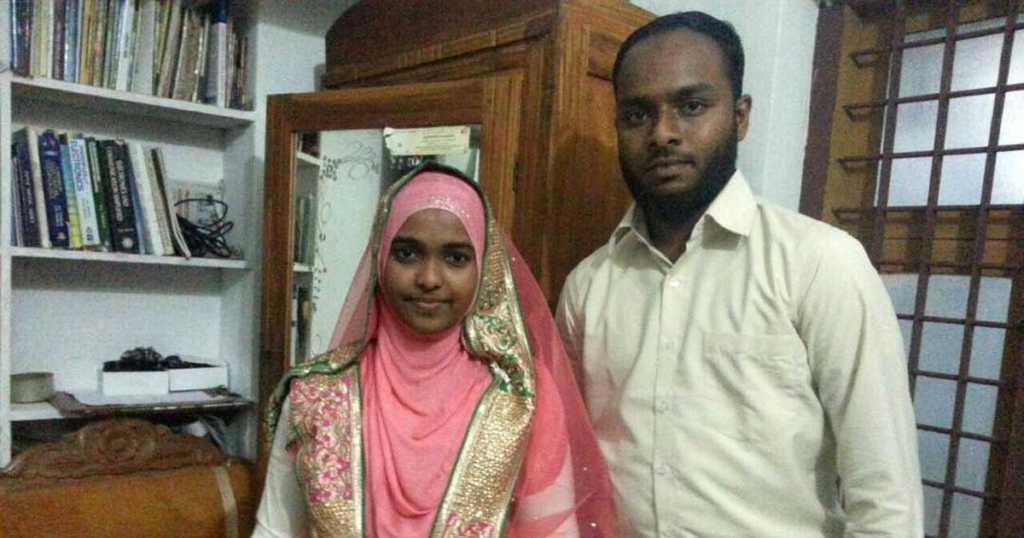Hate and Cacophony aside, Whether there is any substance in the “Love Jihad” campaign or not is a very serious issue. The irony is those who practice it deny it. Those who claim it happens can never prove it. As the polity, press, administration and society failed to solve this conundrum, the last place where all problems in a functioning democracy are passed on to i.e., the Judiciary has now taken upon itself to investigate the problem.
Vikram was carrying Betal from the Banyan tree to Kali Mandir, when Betal wanted to test how adept the King was in current affairs is. So he said to Vikram, “Dear Vikram, I tell you the story of one Akhila who became Hadiya so you won’t feel the bumps on the highway. Listen carefully and answer my queries”.
Case Brief:
In the case of Akhila, who became Hadiya before marrying one Shafin Jahan, even judiciary itself found walking a thin line between individual rights of an adult, parental rights over an adult and of course the never ending religious prejudices.
Her father filed a complaint reporting his daughter was missing and in the custody of one Aboobacker. Then, he filed a case of habeas corpus petition in the High Court. Akhila, still going with her original name at that time refuted her father’s version and went on to complete a ‘course’ to understand Islam to become a Muslim and got a new name Hadiya. Later, on her own will and with some help from others she married Shafin Jahan, who incidentally is a member of Social Democratic Party, the political wing of PFI (Popular Front of India) an extremist organization notorious for its activities.
Again her father Ashokan went to High Court and got a ruling in his favour when the court handed over the custody of Hadiya to her father. Now, it was the turn of the Shafin Jahan to file in court to reclaim his wife. Supreme Court now decided to hear to Akhila/Hadiya on 27th November in person.
Root Cause of the Problem:
It is a fact that Akhila converted to Islam on her own. Rather than hair-splitting the legal matters, it helps to understand why she considered to change her religion. When Akhila could not stand the food at hostel of Sivraj Homeopathic Medical College in Salem, she moved into a house and lived with four mates, two Hindu and two Muslim girls.
Akhila was attracted to Islam by the timely prayers and good character of Jaseena and Faseena. Inspired by them, she learnt about Islam on her own before the metamorphosis started.
Betal asked Vikram “The wise King, this is the story of Akhila, who now likes to be called Hadiya. She wants to go back to her husband Shafin Jahan. Her father claims she was brainwashed to become a Muslim and this is a case of Love Jihad. Her mother simply cries. Her husband wants to unite with her.”
“Now tell me, who is at fault for the situation wherein Hadiya is now confined in her father’s home? What should the learned judges do, given they have to work within the frame of constitution (a phrase most of us interpret to our own biases with our limited knowledge)?”
Vikram took a deep breath and contemplated before answering.
“Dear Betal, the parents of Akhila are at fault. They failed to inculcate their own culture in her, when she was a kid and growing into a young woman. One has to shape their children when they are young. Once they cross adolescence, it is not possible to change a belief system that they have developed through their own experiences and learning.
It is the parental duty to inform and educate children of their ancestors and the customs and practices. The customs and practices of each household in the world vary from that of the neighbor. Parents often neglect to pass on their culture to the child and inculcate practices of their household and their community and society in a manner that the child understands the importance and meaning of these practices and their need. The child, upon evolving into an adult is suddenly exposed to the external world but perceives it only as a child. It is a case of an adult with the brain of a child.
If Akhila was impressed by the timely prayers of her room mates and their character, in her own admission she lacked the character that was borne out of discipline. She was awed by the discipline of these sisters and wanted to emulate them. What Ashokan now should realize is that neither he nor his wife were good examples for their daughter. Despite being born in a Hindu family, Akhila grew void of spirituality and when she was exposed to the first religious practices, she was attracted to it.
Now, when Ashokan found his daughter moving away from the family, he should have had a spiritual discussion with her. If he was incompetent, he should have taken help from elders of his family. If Ashokan’s family grew like a detached nuclear city dwelling family separated from all ties of culture, tradition, spirituality, religion and even bonds of kinship, Blaming Akhila for this is meaningless. Even if her conversion and marriage were done by some external design with ulterior motives. What is the point of blaming others, when one is not fully safeguarding his own interests?
The court is bound by the law and would leave it to Akhila to decide her future. If she wants to go back to her husband, the court cannot stop her.
Betal: What should her father do?
Vikram: As a failed father, he can now explain the perils of bad parenting to other parents. He, along with his wife shall embark on a mission and spread awareness about following family practices by all couples.
